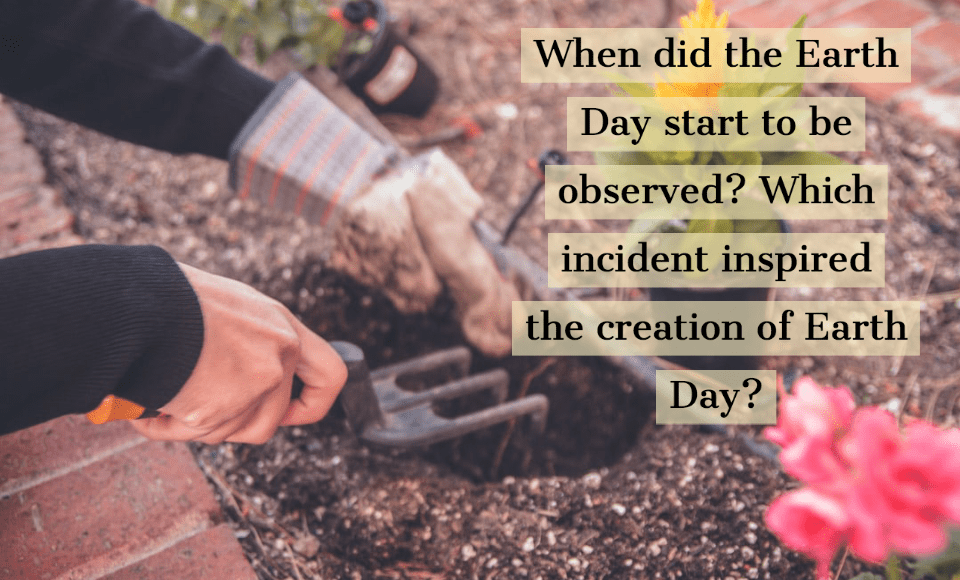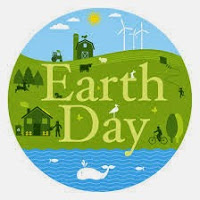We have so many celebrations in our lives, our birthday, Christmas day, New Year’s Day, Mother’s Day, Father’s Day, Valentine’s Day, and so on. But one significant celebration that humanity should observe is Earth’s Day.
With its goal of diversifying, educating and activating the environmental movement to drive transformative change for people and the planet, indeed, we all have to take part in this advocacy.
Pillars of Earth Day
With the deteriorating environment in the United States, elected to the U.S. Senate in 1962, Senator Gaylord Nelson, a junior senator from Wisconsin, was deeply concerned about the issue. In January 1969, he and many others had witnessed a massive oil spill in Santa Barbara, California.
Senator Nelson had the idea of incorporating the energy of student anti-war protests with an emerging public consciousness regarding water and air pollution. He announced this idea for a teach-in on college campuses to the national media. He also tapped Pete McCloskey, a conservation-minded Republican Congressman, and persuaded to be his co-chair.
Denis Hayes, who had served as student president at Stanford University, also had a significant role. He organized the campus teach-ins and started on April 22, a weekday fall between Spring Break and Final Exams, to maximize the greatest student participation. Hayes had seen the enormous potential of the advocacy to inspire all Americans; thus, he built a national staff to promote events across the land.
In 1969, Nelson announced the Earth Day concept at a conference in Seattle in the fall. It sparked national media attention and caught on across the country.
Earth Day in America
The movement inspired about 10% of the American population. Thousands of colleges and universities organized protests, and there were massive coast-to-coast rallies in cities, towns, and communities to go against activities that contribute to the deterioration of the environment.
Many groups were organized fighting against oil spills, polluting factories and power plants, raw sewage, toxic dumps, pesticides, freeways, the loss of wilderness, and the extinction of wildlife. With their shared values, they all united on Earth Day.
On the first day on April 22, 1970, rallies were held in Philadelphia, Chicago, Los Angeles, and most other American cities. Mayor John Lindsay closed off a portion of Fifth Avenue in New York City.
The first Earth Day became a useful tool in raising awareness of environmental issues and in transforming public attitudes.
A critical development brought about by the movement was the establishment of the Environmental Protection Agency, which was tasked with protecting human health and safeguarding the natural environment—air, water, and land. Besides, several vital pieces of environmental legislation were passed: the Clean Air Act, the Water Quality Improvement Act, the Endangered Species Act, the Toxic Substances Control Act, and the Surface Mining Control and Reclamation Act.
By the year 1990, many environmental leaders approached Denis Hayes and organized a global campaign. This time the Earth Day became global with 141 countries joining, and about 200 million people involved. It gave a huge enhancement to recycling efforts worldwide and helped pave the way for the 1992 United Nations Earth Summit in Rio de Janeiro. With the success of Earth Day, it prompted President Bill Clinton to award Senator Nelson the Presidential Medal of Freedom, which is the highest honor given to civilians in the United States.
For the past decades, Earth Day Network has inspired hundreds of millions of people into the environmental movement, creating opportunities for civic engagement and volunteerism in 193 countries. Every year, it engages more than 1 billion people, which has become a major stepping stone along the pathway of engagement around the protection of the planet.
On April 22, 2020 is the 50th anniversary of Earth Day. Along with the celebration is the signing of the Paris Agreement to take climate action.
Climate change is a reminder that we all need to be serious about the global issue we are facing. This planet is not anymore getting younger and stronger to combat all the negative impacts that human activities had caused and may still be causing in the future. We may not be able to mobilize groups and conduct massive campaigns, but in our simple ways, starting in our homes, we can always apply the principles and values that Earth Day has.

